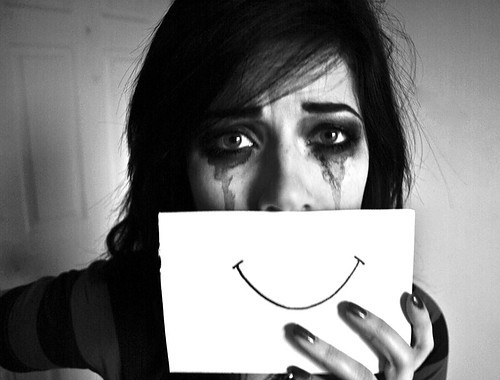Everyone knows what typical Abercrombie and Fitch ads look like. They're pretty impossible to ignore.
Well, searching for those pictures was definitely the most fun I've ever had while doing homework. There are Abercrombie ads with female models in them of course, but most are coupled up with guys in some sort of romantic situation. The solo girl ads are pretty much only up inside actual stores; if you search "Abercrombie ads" on Google, it's almost exclusively male models. I even checked to make sure I hadn't accidentally typed "Abercrombie abs." (Which probably wouldn't be too bad.)
The reason for this is somewhat obvious: girls are the primary Abercrombie consumers. It's fine to have pictures of pretty female models once you're in the store, because they've already reeled you in at that point. It could even make a girl think "Wow, she is so pretty. I'll totally look like that when I wear my Abercrombie clothes." But the bags, the billboards, the huge pictures in the storefront windows, everything you see while you're not inside the store, those pictures are only of extremely athletic, body hair-less hot guys. It practically screams HELLO TEENAGE GIRLS!
To some extent, this appeals to guys as well. Seeing all their female peers fawning over the Abercrombie boys could make it seem like we would fall all over any guy who wears the brand.
What's funny to me about that is that these guys are barely wearing any clothing at all. On the first one I see a sort of Christmas-y looking big jacket that's probably not even sold at Abercrombie, the second one is putting on a shirt you can't read, you literally can't see any clothes on the third one, and the three in the fourth all have on nondescript, worn looking cargo shorts. If it didn't have the logo written somewhere on the photo (which some of them don't, but I didn't use any like that), there would be no surefire way to tell it wasn't a still shot from a porno, and it could easily be an ad for many other clothing stores.
Well someone's gonna have to change before the party...
People only seeing hot guys in your ads and not actually knowing what your brand's name is could be a huge problem for companies who use this strategy, but Abercrombie has managed to make black and white pictures of young attractive people synonymous with their name, instead of losing their brand amidst the many frolicking supermodels.
So I think their approach has worked. I don't shop at Abercrombie, I don't quite believe in paying $50 for a thin white shirt, but I would definitely not turn down anyone who wanted to buy their clothes for me, or skip out on an extreme supersale or something. Wearing their clothes is nearly equivalent to being attractive and fashionable and tasteful and cool. Few teenage girls (their target market) can resist that appeal.
Several tactics are used in these ads. Because there are very few actual words on any of their print ads, there isn't much concrete language breakdown to do. However, the only words any of them do have, Abercrombie & Fitch, have a huge meaning beyond their objective reality. What they really are are the last names of David Abercrombie and Ezra Fitch, who started an elite "excursion wear" store in New York City in 1892. Since then they have come to captivate the minds, hearts, and wallets of everyone ever. This is reification.
The needs for affiliation, attention, autonomy, and (somewhat) escape are addressed in their ads. Affiliation: can you say 'boyfriend'? These smiling hunks are perfect for fantasizing. The ads with groups of people suggest that being united in their impeccable style preferences brings friends closer. Attention: wearing this will make you hot. Who doesn't want to be hot? Maybe some of the guys in the ads will notice you. (They won't.) Autonomy: wearing these clothes will single you out from the Walmart brand-wearing slobs of the world. Escape: many of their ads' fuzzy backgrounds are beaches or other pristine nature scenes, or the insides of nice houses or picturesque cities.
As far as techniques, these simple ads seem to use sex appeal, and possibly glittering generalities. The sex appeal is hardly in need of clarification. These guys could not wear their pants slung any lower, and it doesn't look like they have much on underneath. Glittering generalities: these are definitely appealing images, and they insinuate that if you wear their clothes, it will change your life into one of a beautiful person unconcerned with the world's problems, and make you a beautiful person unconcerned with the world's problems.











